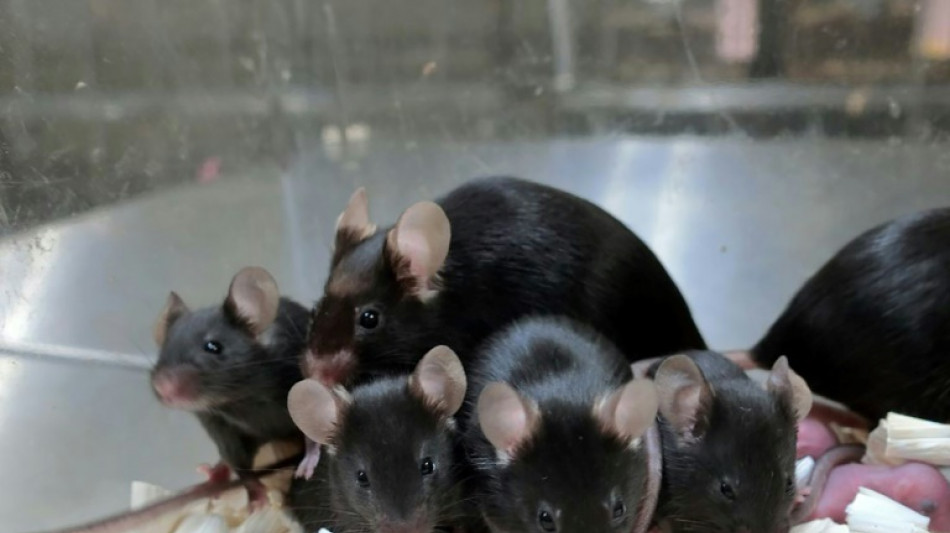
-
 Sudan 'lost all sources of revenue' in the war: finance minister to AFP
Sudan 'lost all sources of revenue' in the war: finance minister to AFP
-
Freezing rain hampers transport in Central Europe
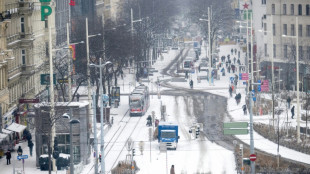
-
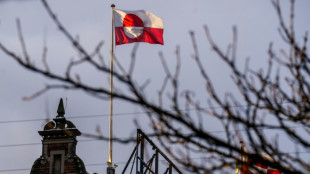 Nuuk, Copenhagen cautiously mull Greenland independence
Nuuk, Copenhagen cautiously mull Greenland independence
-
'Proving the boys wrong': Teenage racers picked for elite driver programme
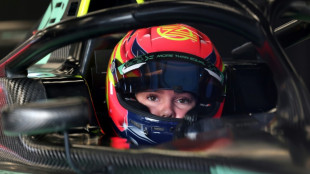
-
 Mbappe absent from training as Arbeloa takes charge at Real Madrid
Mbappe absent from training as Arbeloa takes charge at Real Madrid
-
Iran worries push up oil price as world stocks diverge

-
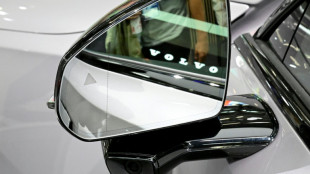 Volvo Cars pauses battery factory after fruitless partner search
Volvo Cars pauses battery factory after fruitless partner search
-
Social media harms teens, watchdog warns, as France weighs ban
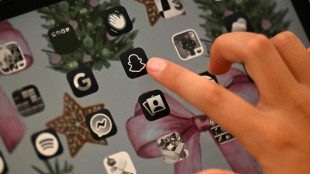
-
 Central bank chiefs voice 'full solidarity' with US Fed, Powell
Central bank chiefs voice 'full solidarity' with US Fed, Powell
-
Greece airspace shutdown exposes badly outdated systems
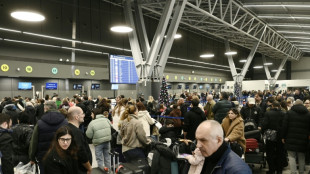
-
 France climate goals off track as emissions cuts slow again
France climate goals off track as emissions cuts slow again
-
Boeing sells 50 737 MAX jets to leasing group ACG

-
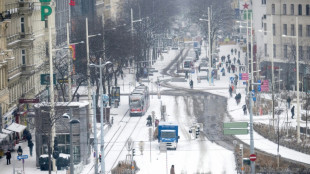 Freezing rain paralyses transport in Central Europe
Freezing rain paralyses transport in Central Europe
-
Man Utd reach deal to appoint Carrick as interim boss: reports

-
 Trump hits Iran trade partners with tariffs as protest toll soars
Trump hits Iran trade partners with tariffs as protest toll soars
-
Is China a threat to Greenland as Trump argues?

-
 Takaichi says urged S. Korea's Lee to help 'ensure regional stability'
Takaichi says urged S. Korea's Lee to help 'ensure regional stability'
-
South Korean prosecutors set to demand heavy sentence for Yoon

-
 Honduras electoral authorities reject vote recount
Honduras electoral authorities reject vote recount
-
Tractors in Paris to protest EU's trade deal with S. America

-
 Asian markets rise, Iran worries push up oil
Asian markets rise, Iran worries push up oil
-
Williams loses golden oldie clash in final Australian Open warm-up

-
 Kyrgios stands by decision to skip Australian Open singles
Kyrgios stands by decision to skip Australian Open singles
-
Disaster losses drop in 2025, picture still 'alarming': Munich Re

-
 Williams, 45, loses in first round of final Australian Open warm-up
Williams, 45, loses in first round of final Australian Open warm-up
-
Doncic scores 42 points but Lakers humbled by Kings

-
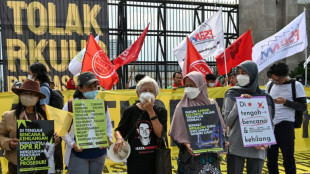 'Serious threat': Indonesia legal reform sparks rights challenges
'Serious threat': Indonesia legal reform sparks rights challenges
-
Rodgers misery as Texans rout Steelers to advance in NFL playoffs

-
 Morocco's Bono 'one of best goalkeepers in the world'
Morocco's Bono 'one of best goalkeepers in the world'
-
Salah and Mane meet again with AFCON final place on the line

-
 French museum fare hikes for non-European tourists spark outcry
French museum fare hikes for non-European tourists spark outcry
-
In 'big trouble'? The factors determining Iran's future

-
 Osimhen finds AFCON scoring touch to give Nigeria cutting edge
Osimhen finds AFCON scoring touch to give Nigeria cutting edge
-
Trump announces tariffs on Iran trade partners as protest toll rises

-
 Sabalenka favourite at Australian Open but faces Swiatek, US threats
Sabalenka favourite at Australian Open but faces Swiatek, US threats
-
Gay Australian footballer Cavallo alleges former club was homophobic

-
 Global Sports Brand U.S. Polo Assn. Announced as Official Jersey and Apparel Sponsor for the Legendary Snow Polo World Cup St. Moritz
Global Sports Brand U.S. Polo Assn. Announced as Official Jersey and Apparel Sponsor for the Legendary Snow Polo World Cup St. Moritz
-
Trump has options on Iran, but first must define goal

-
 Paris FC's Ikone stuns PSG to knock out former club from French Cup
Paris FC's Ikone stuns PSG to knock out former club from French Cup
-
Australia's ambassador to US leaving post, marked by Trump rift

-
 Slot angered by 'weird' Szoboszlai error in Liverpool FA Cup win
Slot angered by 'weird' Szoboszlai error in Liverpool FA Cup win
-
Szoboszlai plays hero and villain in Liverpool's FA Cup win

-
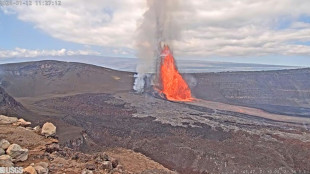 Hawaii's Kilauea volcano puts on spectacular lava display
Hawaii's Kilauea volcano puts on spectacular lava display
-
US stocks at records despite early losses on Fed independence angst

-
 Koepka rejoins PGA Tour under new rules for LIV players
Koepka rejoins PGA Tour under new rules for LIV players
-
Ex-France, Liverpool defender Sakho announces retirement

-
 Jerome Powell: The careful Fed chair standing firm against Trump
Jerome Powell: The careful Fed chair standing firm against Trump
-
France scrum-half Le Garrec likely to miss start of Six Nations

-
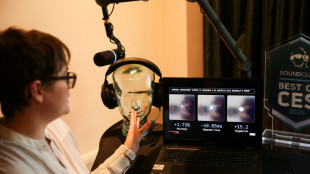 AI helps fuel new era of medical self-testing
AI helps fuel new era of medical self-testing
-
Leaders of Japan and South Korea meet as China flexes muscles


Freeze-dried mice: how a new technique could help conservation
Japanese scientists have successfully produced cloned mice using freeze-dried cells in a technique they believe could one day help conserve species and overcome challenges with current biobanking methods.
The United Nations has warned that extinctions are accelerating worldwide and at least a million species could disappear because of human-induced impacts like climate change.
Facilities have sprung up globally to preserve samples from endangered species with the goal of preventing their extinction by future cloning.
These samples are generally cryopreserved using liquid nitrogen or kept at extremely low temperatures, which can be costly and vulnerable to power outages.
They also usually involve sperm and egg cells, which can be difficult or impossible to harvest from old or infertile animals.
Scientists at Japan's University of Yamanashi wanted to see whether they could solve those problems by freeze-drying somatic cells -- any cell that isn't a sperm or egg cell -- and attempting to produce clones.
They experimented with two types of mice cells, and found that, while freeze-drying killed them and caused significant DNA damage, they could still produce cloned blastocysts -- a ball of cells that develops into an embryo.
From these, the scientists extracted stem cell lines that they used to create 75 cloned mice.
One of the mice survived a year and nine months, and the team also successfully mated female and male cloned mice with natural-born partners and produced normal pups.
The cloned mice produced fewer offspring than would have been expected from natural-born mice, and one of the stem cell lines developed from male cells produced only female mice clones.
"Improvement should not be difficult," said Teruhiko Wakayama, a professor at the University of Yamanashi's Faculty of Life and Environmental Sciences, who helped lead the study published in the journal Nature Communications this month.
"We believe that in the future we will be able to reduce abnormalities and increase the birth rate by searching for freeze-drying protectant agents and improving drying methods," he told AFP.
- 'Very exciting advance' -
There are some other drawbacks -- the success rate of cloning mice from cells stored in liquid nitrogen or at ultra-low temperatures is between two and five percent, while the freeze-dried method is just 0.02 percent.
But Wakayama says the technique is still in its early stages, comparing it to the study that produced "Dolly" the famous sheep clone -- a single success after more than 200 tries.
"We believe the most important thing is that cloned mice have been produced from freeze-dried somatic cells, and that we have achieved a breakthrough in this field," he said.
While the method is unlikely to entirely replace cryopreservation, it represents a "very exciting advance for scientists interested in biobanking threatened global biodiversity", said Simon Clulow, senior research fellow at the University of Canberra's Centre for Conservation Ecology and Genomics.
"It can be difficult and costly to work up cryopreservation protocols and so alternatives, especially those that are cheaper and robust, are extremely welcome," added Clulow, who was not involved in the research.
The study stored the freeze-dried cells at minus 30 degrees Celsius, but the team has previously showed freeze-dried mouse sperm can survive at least a year at room temperature and believes somatic cells would do too.
The technique could eventually "allow genetic resources from around the world to be stored cheaply and safely", Wakayama said.
The work is an extension of years of research on cloning and freeze-drying techniques by Wakayama and his partners.
One of their recent projects involved freeze-drying mouse sperm that was sent to the International Space Station. Even after six years in space the cells were successfully rehydrated back on Earth and produced healthy mice pups.
T.Samara--SF-PST




